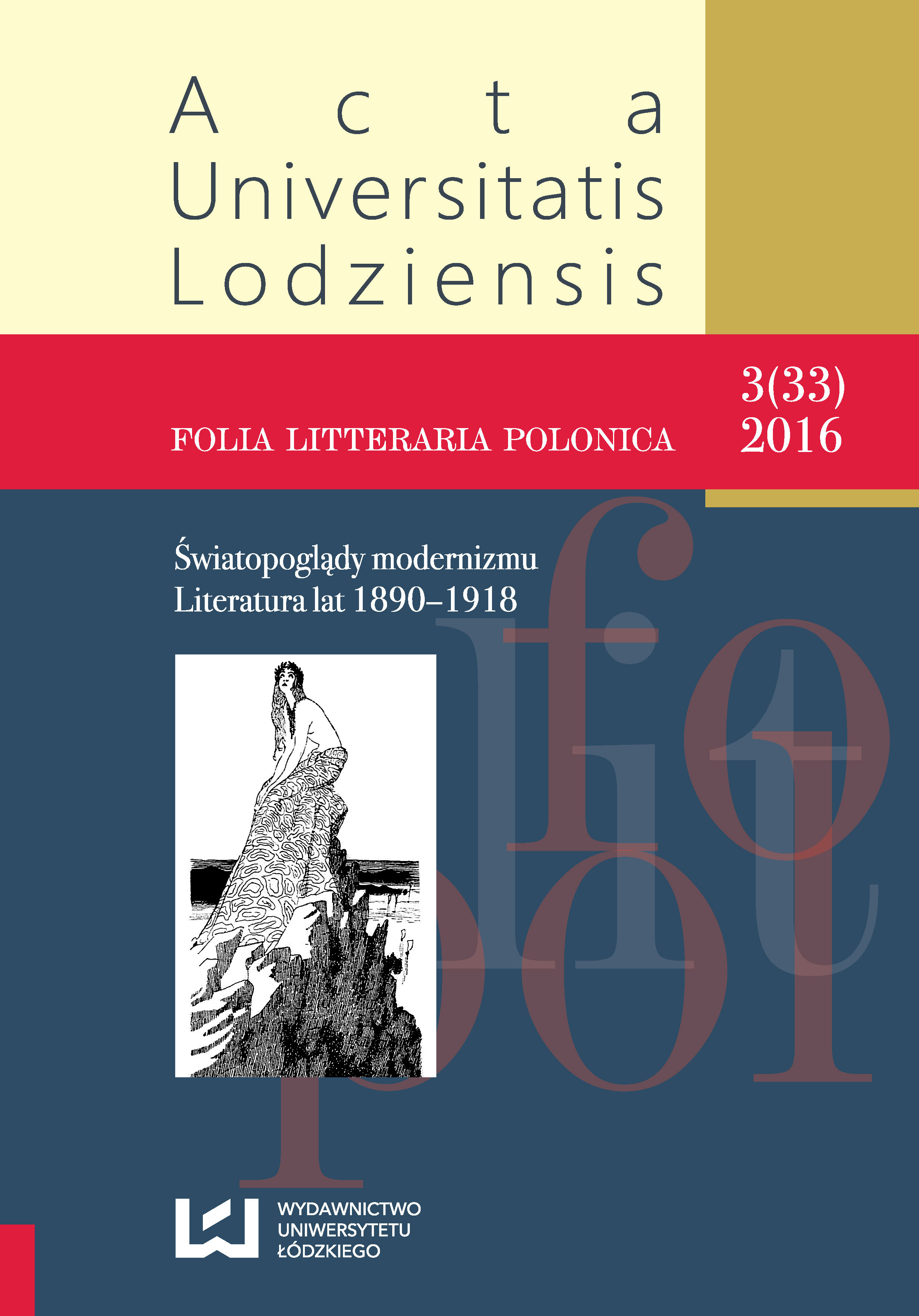Znaczenie Pokolenia ’98 dla narodowej oraz intelektualnej tożsamości Hiszpanów
DOI:
https://doi.org/10.18778/1505-9057.33.17Słowa kluczowe:
Pokolenie ’98, Hiszpania, modernizm, tożsamość narodowa, krytyka społeczna, kryzysAbstrakt
The article presents the characteristics of Spanish modernism. The author points to a group of writers known as Generation ’98, whose shared characteristic was their focus on the criticism of the socio-political situation of their country in the late nineteenth and early twentieth century. The key representatives of the group are: Miguel de Unamuno, José Martínez Ruiz (Azorín), Pío Baroja, Ramiro de Maeztu, and Ramón del Valle-Inclán. The first section of the paper outlines the specific qualities of the literary output and attitudes of the Generation ’98 writers, distinct from modernism as such. The second part focuses on the attitude of thinkers to Spain and Spanishness, as well as intellectual consequences thereof. The final part presents a critique of that trend and its interpretation.
Pobrania
Bibliografia
Abellán José Luis, Historia crítica del pensamiento español, t. 5/II, Espasa-Calpe, Madrid 1989.
Google Scholar
Ferrater Mora José, Is there a Spanish philosophy?, http://www.ferratermora.org/essa_hispanic-review.html [dostęp: 14.07.2015].
Google Scholar
Górski Eugeniusz, Hiszpańska refleksja egzystencjalna. Studium filozofii i myśli politycznej Miguela de Unamuno, Zakład Narodowy im. Ossolińskich, Wrocław 1979.
Google Scholar
Górski Eugeniusz, Idea Europy i myśl współczesna w Hiszpanii, Wydawnictwo Naukowe Scholar, Warszawa 2013.
Google Scholar
Mora García José Luis, Avances en el estudio de la filosofía hispánica, w: Z myśli hiszpańskiej i iberamerykańskiej. Filozofia – literatura – mistyka. María Zambrano: un pensamiento en el orden del tiempo, red. M. Jagłowski, D. Sepczyńska, Instytut Filozofii Uniwersytetu Warmińsko-Mazurskiego, Olsztyn 2006, s. 15–30.
Google Scholar
Moreno Hernández Carlos, Castilla, lugar común del 98, https://pendientedemigracion.ucm.es/info/especulo/numero8/castilla.htm [dostęp: 14.07.2015].
Google Scholar
Núñez Diego, El llamado “problema de España”: mito y realidad, http://ahf-filosofia.es/wp-content/uploads/llamadoproblemaespana.pdf [dostęp: 14.07.2015].
Google Scholar
Núñez Florencio Rafael, El 98 como mito, http://www.nuevarevista.net/articulos/el-98-como-mito [dostęp: 14.07.2015].
Google Scholar
Ortega y Gasset José, El tema de nuestro tiempo, Espasa-Calpe, Madrid 1955.
Google Scholar
Ortega y Gasset José, España invertebrada, Espasa-Calpe, Madrid 1964.
Google Scholar
Rico Francisco, Historia y crítica de la literatura española, t. 6, Crítica, Barcelona 1994.
Google Scholar
Ruiz José Martínez, Clásicos y modernos, Editorial Losada, Buenos Aires 1943.
Google Scholar
Ruiz José Martínez, La voluntad, Cátedra, Madrid 2014.
Google Scholar
Savater Fernando, Citizens or natives?, http://www.eutopiamagazine.eu/en/fernando-savater/speakers-corner/citizens-or-natives [dostęp: 14.07.2015].
Google Scholar
Unamuno de Miguel, En torno al casticismo, Espasa-Calpe, Madrid 1991.
Google Scholar
Unamuno de Miguel, O poczuciu tragiczności życia wśród ludzi i narodów, przeł. H. Woźniakowski, Wydawnictwo Literackie, Kraków–Wrocław 1984.
Google Scholar
Zambrano María, Senderos, Anthropos, Barcelona 1989.
Google Scholar
Pobrania
Opublikowane
Jak cytować
Numer
Dział
Licencja

Utwór dostępny jest na licencji Creative Commons Uznanie autorstwa – Użycie niekomercyjne – Bez utworów zależnych 4.0 Międzynarodowe.











